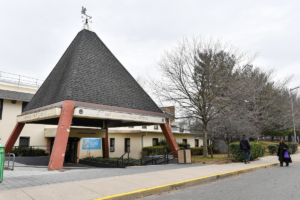Public recreational initiatives are creating an abundance of government contracting opportunities throughout America as local governments build parks, aquatic centers, urban socializing spaces, walking trails, sports facilities and event centers. These initiatives facilitate activities enjoyed by citizens and result in new tax revenue, economic stimulus, higher property values and job creation. Then… there is the funding currently available from the federal government for projects of this type.
It may come as a surprise, but parks have a significant impact on driving economic activity. In 2019, parks reportedly accounted for $107 billion in the country’s gross domestic product (GDP). The American Rescue Plan Act (ARPA), passed by Congress after COVID-19 allocated billions in funding for parks and public recreation facilities. As a result, recreation related projects will offer hundreds, perhaps thousands, of contracting opportunities in 2024 and many of the upcoming projects are currently in the planning and design phases.
The Roy Wilkins Park in New York will get a new indoor pool and repairs will be made to an existing pool in 2024. City leaders have announced $55 million in funding for the St. Albans, Queens project. The new pool will be competition-sized, and the aquatic infrastructure will be available for residents of southeast Queens. The facility will be designed to accommodate swimming classes and community events. This new investment follows a previously announced $92 million allocation for a new recreation center in the same park. The center will provide a gym, other fitness space and numerous multipurpose rooms.
A coalition called the Open Space Institute has proposed a 70-mile-long park and boating facility in Kingstree, Williamsburg County, South Carolina. The $45 million project will connect a dozen local, state and private parks along 70 miles of South Carolina’s Black River. The trail project will differ from most because it will be designed to be taken by boat instead of on land. Phase one of the project will construct a parking lot and restrooms, which will be situated on permeable pavement that will allow water to seep back into the ground. Phase two of the project will include the construction of an events pavilion, amphitheater, nature education center, boat launching dock, fishing pier and boardwalk. Construction is slated for 2024.
Officials in Buncombe County, North Carolina, will use $30 million in voter-approved bond election funding to create 102 miles of new green spaces with hike and bike trails. Most of the trails will be located south of Asheville and north of the neighboring town, Fletcher. Some trails in this new network will be in protected natural areas, while others will run parallel to the Swannanoa and French Broad Rivers. Paths will connect to urban, suburban and rural areas. Local officials say that the project will benefit local citizens and boost commercial activity in tourism. Other project components will include signage, benches, bridges over creeks, public art space, trail information kiosks and other amenities.
The Portland Parks and Recreation Department plans to build a new aquatic center in North Portland with a projected cost estimate between $31 million and $50 million. The project is in the design phase currently and solicitation documents will be released in 2024. The effort will include constructing a lap pool, locker rooms, changing areas, reservable party rooms, spray and play features for children, a large parking area and a spa.
A $31 million project in Seal Beach, California, will reclaim 105 acres of poorly maintained and currently inaccessible wetlands by constructing trails and recreational infrastructure. The California State Coastal Conservancy will supervise the project, including wetlands signage, parking lots, public gathering areas and a trail network. The new amenities will create space for other public recreation initiatives. Following this initial project, a second phase will focus more on environmental engineering to promote the exchange of water between the wetlands and the ocean through improved waterways.
Officials at the Alamo Community College District in San Antonio, Texas, will oversee an initiative to construct a new aquatic center and renovate an older multi-generational facility on the Palo Alto College campus. The project will require demolishing an old aquatic facility and constructing a new one, including a 50-meter Olympic pool, bleacher seating, scoring office, press box and mechanical/pool equipment rooms. The project’s cost is expected to be $37 million. Renovation of the older multigenerational facility will be approximately $15 million. The design phase for both projects is currently underway.
Work is underway in Redford, Michigan, to complete the design phase of a $19.5 million recreation and wellness center. The new 30,000-square-foot center will include numerous amenities, including a gym, an indoor walking track, a swimming pool, basketball and pickleball courts and meeting spaces and classrooms. It will be designed to host programs currently run by the city’s Parks and Recreation Department. The recreation center project is in the design phase, and construction will begin in 2024. Much of the funding came from the American Rescue Program (ARPA) and was allocated to the city and county.
Recreational initiatives will be robust in 2024 and contracting firms interested in these efforts are advised to get involved soon.

